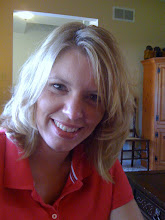
Shacks, goats grazing in the outfield, pine trees, ankle-deep mud and a sulfur spring shower - all of these images make you think of Major League Baseball Spring Training, right? Well maybe not you, but for Connie Mack they would have. The longtime Philadelphia Athletics manager seemed to have a love-hate relationship with Spring Training beginning with an eventful first trip as a player and ending with questioning the necessity of traveling south. Throughout it all, Mack remained steadfast in his commitment to preparing his players both physically and mentally.
As a young catcher for the Washington Senators in 1888, Mack joined his teammates for their first "Southern Trip", as Spring Training was called at the time, to Jacksonville, FL. The Senators were following in the footsteps of the Chicago White Stockings and Philadelphia Phillies who started heading south for training two years earlier, going to Hot Springs, AK and Charleston, SC respectively. While the White Stockings were put up in a plush hotel, the Senators were hosted by a local woman in two shacks in the woods. Mack described the accommodations as "vile." In his book Connie Mack and the Early Years of Baseball, Norman Lee Macht describes several less than desirable Spring Training trips for Mack including one as a manager in 1903 with no baseball field, just a park with ankle-deep mud.
Despite the shabby conditions, Mack pressed on and worked with his team. Macht explains, "they concentrated more on headwork than on footwork." He wanted his team to play intelligent baseball, to know how to learn the other teams' signs, read their body language and predict their next move. One of his players, Monte Cross, later said "Connie Mack studies the moves of the other side closer than any manager I ever saw, at bat or in the field he can tell exactly what his opponents are planning and is often able to block them."
As a presenter and trainer, I may not travel south to hone my skills but I do often retreat to my basement when I have a new curriculum to practice. I've also followed Connie Mack's strategy of studying the opponent, or in my case, the audience. I try to predict what questions they will have so I am prepared to answer them. Once I prepare my presentation I practice several times until I have all the kinks worked out. This strategy has worked well for me for trainings, meetings with potential partners and even job interviews.
The strategy worked well for Mack as well. He is the longest serving manager in Major League Baseball and was with the Athletics for their first 50 years. Towards the end of Mack's career, baseball, like many industries in the country, was interrupted by World War II. Rather than travel south for Spring Training, teams stayed close to home. The Athletics held camp in Frederick, MD and Mack predicted publicly that this would mark the end of teams' annual trips to warmer climates for extra training. Most managers and baseball writers disagreed and those of us who have been counting down the days until "Pitchers and Catchers Report" know his prediction was one of the few things Mack got completely wrong. The Athletics returned to Jacksonville in 1946. I doubt today's players reporting to Spring Training have to contend with goats and sulfur showers like Mack did, but I know they are learning the intelligent and strategic brand of play that he helped to develop.







No comments:
Post a Comment